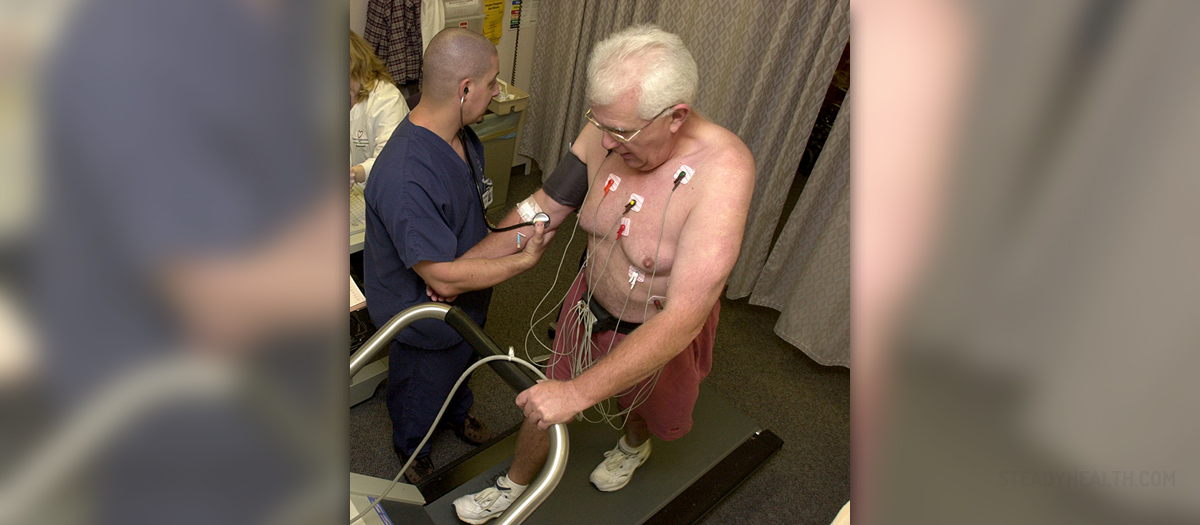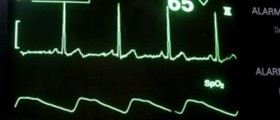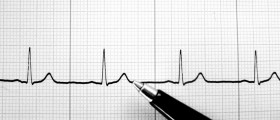Thallium Stress Test Characteristics
Thallium stress test is a medical examination performed in order to get an insight into one's blood pumping into his or her heart. During this test, the subject is supposed to be relaxed and physically active, so as for the results to be more precise and thorough. Therefore, a treadmill is often used during thallium stress test. This way, the doctors can see if there are any consequences after a cardiac arrest or some other heart problem which was solved beforehand.
Also, this procedure may show some heart and circulation complications and help with the diagnosis. Finally it can test the overall performance of the heart and thus, once having the results, check for any possible problems.

Many people are frightened by the fact that a radioactive substance, thallium is used in this procedure. However, the amount of this material is so small that it cannot possibly cause any health problems. Nevertheless, there were some extremely rare cases where people experienced unwanted side-effects when doing the thallium stress test.
Possible Side-effects of Thallium Stress Test
First and foremost, there is a danger of the IV complications, namely including swelling, pain and bleeding in the spot where the IV needle is positioned. Secondly, the patient may experience chest pain, dizziness, low blood pressure, heart beat irregularities or even a heart attack, even though all of these cases are extremely rare.
Additionally, blood pressure problems and arrhythmia may strike the patient as well. Moreover, if we consider the treadmill, being one of the basic parts of this test, there might be some problems regarding it. Namely, obese people and individuals with joint problems cannot do this test correctly, since they will have painful and troublesome experiences when running upon the treadmill.
As for the thallium, upon getting injected with it, you might feel some symptoms of radiation such as fatigue and nausea. In these cases, let your doctor know how you are feeling as soon as you experience these symptoms. Along with these, you might be troubled by a headache, both after the injecting and after physical straining.
- Fewer data are available for dobutamine instead of exercise stress, with reported rates of myocardial infarction or death of 0.025%.
- Myocardial infarction or death associated with vasodilator stress appears to be similarly rare, with an approximate rate of 0.028%.
- However, if nuclear perfusion imaging is performed, the radiation dose must be added to the risk profile. A typical radiation dose for a sestamibi rest-stress protocol encompasses 11 mSv, whereas a dual isotope protocol involving thallium yields a dose of 24 mSv. Adopting the guidelines set by BEIR VII at the National Academy of Sciences, a 0.1% risk of cancer is assumed for any 10 mSv dose.
- Accordingly, a reasonable assumption of risk for myocardial infarction, cancer, or death results from stress testing that ranges from 0.025% with dobutamine echocardiography, to 0.28% for an exercise nuclear perfusion study using thallium.
- In addition to the direct risks from stress testing, there are indirect risks, i.e. adverse effects from false positive or false negative test results. Since there is a 70% normal testing result and an optimistic 80% sensitivity and specificity, approximately 1.4 million patients in the US will have a false positive or negative stress test result every year. Assuming that one fourth will undergo cardiac catheterization for a false positive result with a major complication rate of 1.7%, including 0.23% for myocardial infarction, stroke, or death, 5,950 patients every year (0.06% of all patients) will suffer major complications, and 805 patients (0.008%) will suffer life threatening complications from an invasive procedure that was prompted by a false positive stress test. Even more important, however, is the effect of false negative testing results.
Sometimes, due to incorrect results or the patient's incompatibility with this method, some people are recommended to do other, different types of tests like the heart echo stress, where they are bound to show better and more precise results.
All in all, you can only benefit from getting informed of the thallium stress test beforehand. This way, you will be more prepared and better introduced with the whole procedure, leaving little to chance and knowing when to react and report any problems to the hospital staff.
















Your thoughts on this
Loading...